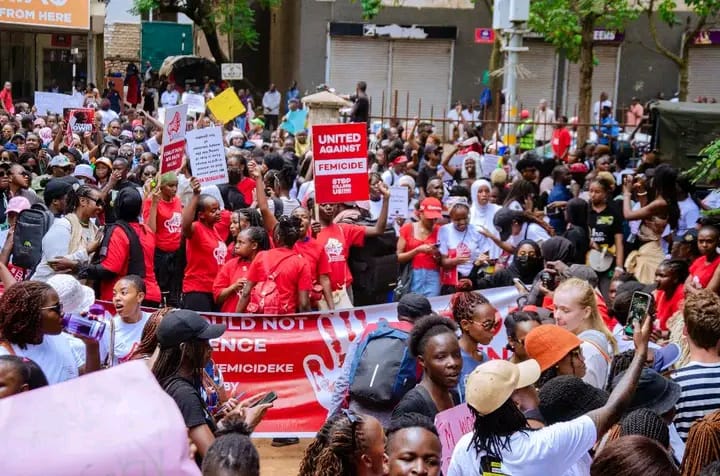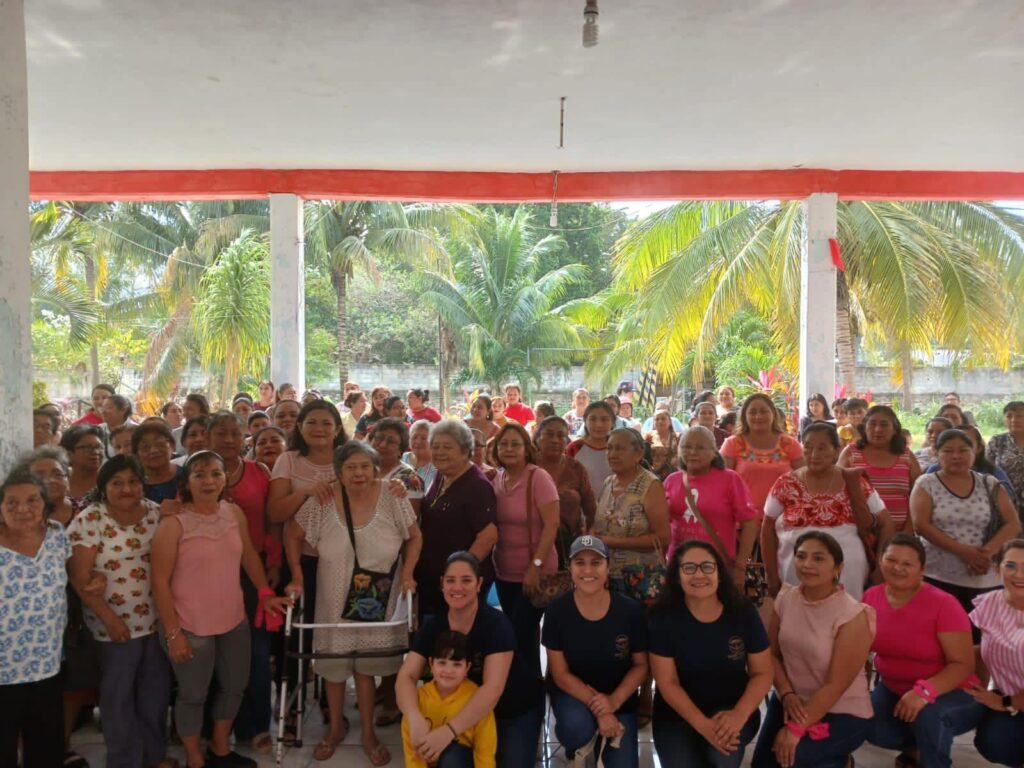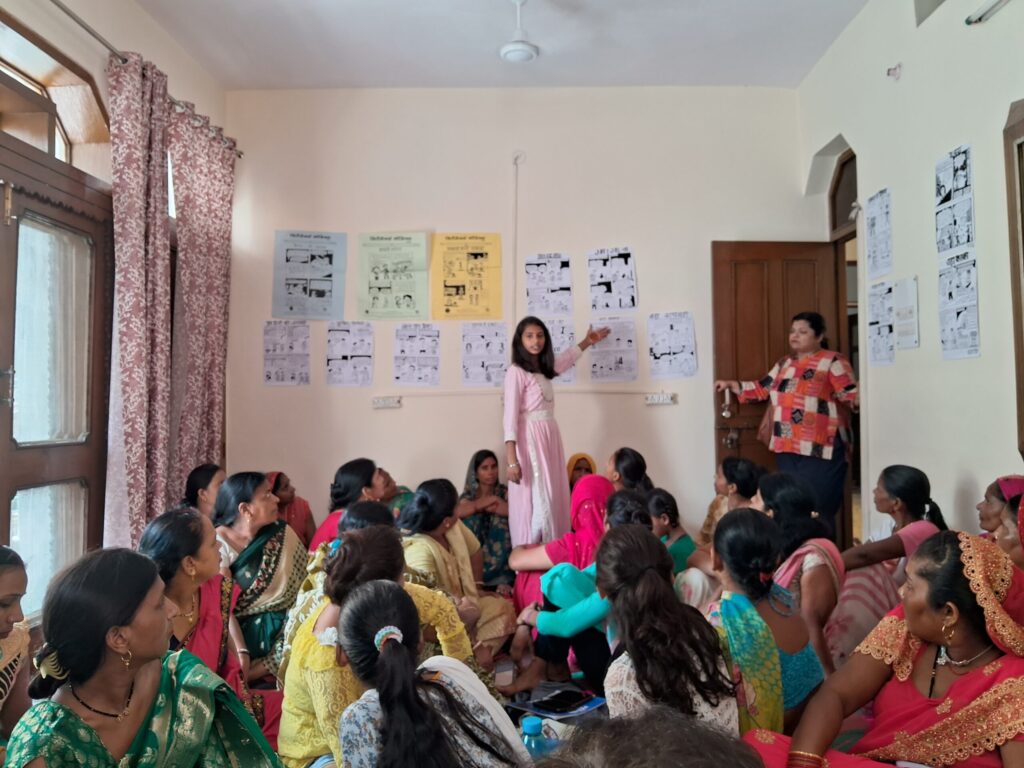#BeBoldforChange: Dr. Susan Blaustein

WomenStrong International is an organization of bold women, from the brave girls in our Girls’ Clubs in Ghana, Haiti, India, and Kenya, to the women who face challenges each day, as they work to lift themselves out of extreme urban poverty. So the theme for International Women’s Day 2017 is one we can relate to — #BeBoldforChange. It would be hard to find a bolder, more dedicated, more innovative and passionate group of women than the Project Directors who run WomenStrong programs in our five Consortium member sites.
In honor of Women’s Day this year, we celebrate these bold women with a series of short profiles. We hope you find their stories as inspiring as we do and that these stories encourage you, too, to #BeBoldforChange.
Meet Susan Blaustein
Susan Blaustein’s support for impoverished women and girls and communities is rooted in a long family legacy of promoting social justice and human rights. As Founder and Executive Director of WomenStrong International, Susan looks for inspiration to her grandfather Jacob Blaustein, son of an immigrant and self-made businessman who never forgot about the needs and aspirations of others. Jacob’s compassion, sense of justice and commitment to his fellow human being helped guide his path, as an industrialist, diplomat and champion of human rights. He worked with Eleanor Roosevelt to draft United Nations Declaration of Human Rights, helped support the adoption of the UN Charter as a U.S. delegate attending the 1945 San Francisco Conference and advised five U.S. presidents on Jewish and Israeli affairs.
Susan’s grandmother, too, was a vocal advocate for women’s and human rights, and this compassionate advocacy was passed down to Susan’s own parents, who taught her that, as she put it, “Everyone deserves a decent and fulfilled life.” Susan’s upbringing, her Jewish faith and her family values were powerful influences on her career, but her path to founding WomenStrong was not a straight one.
Always creative, from grade school through college Susan was active in theater, music and the arts. She studied piano, cello and music composition, the field in which she earned her doctorate from the Yale University School of Music, where she also served as a lecturer. From there, Susan’s talent and work won her fellowships from Harvard University, National Endowment for the Arts and the Guggenheim Foundation, enabling her to continue composing and to teach graduate music composition, history and theory at Columbia University.
Along the way, Susan met and fell in love with Alan Berlow, a journalist who covered politics and foreign affairs, national defense and social justice issues. When Alan was asked to open National Public Radio’s first Asia bureau in 1988, Susan was “jolted from my ivory tower” to a lovely foreign correspondents’ compound of old colonial homes positioned right next to a squatters’ colony in downtown Manila. Here, surrounded by extreme urban poverty, Susan’s passion for social justice drove her to begin reporting on these issues herself.
Susan and Alan eventually returned to the States, where Susan continued to compose music and report stories focused primarily on welfare reform and criminal injustice, including with regard to the death penalty. After giving birth to her daughter, she tried to juggle journalism, music and motherhood, and composing eventually gave way to the rest. “Everyone I’ve known in my family has always cared about helping others to have the chance to realize their full potential. You don’t get to do that when you’re composing.”
Now with her career more fully focused on social justice and human rights, Susan served as a senior analyst for the International Crisis Group (ICG), a conflict-prevention think tank, on the ongoing conflicts Bosnia, Serbia, Kosovo and East Timor. She continued to report on the aftermath of the Balkan wars, including investigating how Serbian strongman Slobodan Milosovic financed those wars, for the Coalition for International Justice, another non-profit set up to advise the International Criminal Tribunals in the Hague and in Arusha.
Having closely followed and chronicled the Rwanda genocide and its aftermath, in the mid-2000s Susan grew frustrated with how little the United States was investing in human and economic development across the African continent. She reached out to development economist Jeffrey Sachs and eventually joined the scientific effort he led at Columbia University’s Earth Institute to demonstrate that the Millennium Development Goals could be achieved even in the region the furthest off-track, across sub-Saharan Africa.
When Sachs saw the need for an urban counterpart to the Earth Institute’s integrated rural Millennium Villages Project, he and Susan and other colleagues “composed” the Millennium Cities Initiative (MCI), to serve as the gateway to markets for increased agricultural production from the countryside and to enable the continuum of care and education that would enable both rural and urban communities to thrive. In 2015, the MDGs were subsumed under the new Sustainable Development Goals, and both these projects came to a close. But Susan refused to abandon the women and girls in Millennium Cities slums who, with the support of several tirelessly innovative MCI Project Directors, had made significant progress toward pulling themselves and their families out of extreme urban poverty.
So together with those Project Directors in Ghana and Kenya, several MCI Board members and staff, Susan created WomenStrong International, reaching out to other like-minded NGOs in far-flung regions – India, Haiti, and the U.S. — to build a consortium committed to proving that women and girls, equipped with right tools, are best positioned to utilize those tools to get what they need and to thrive.
“These projects, these women and girls, had a lot to offer each other,” Susan recalled. “They just lacked the technical and financial resources needed. The idea was that by listening to them and working with them, we might be able to help them move forward, to learn from each other. And we could learn from them all, adapting what works, and learning from what doesn’t work in vastly different settings.”
Recently, Susan was explaining WomenStrong International to one of her musical mentors, the composer who first hired her to teach at Columbia. “I can see that you’re still composing,” this lifelong musician exclaimed. “This is a vast orchestration!” But now, Susan says, “There’s much more at stake. Now I’m composing for greater impact.”




